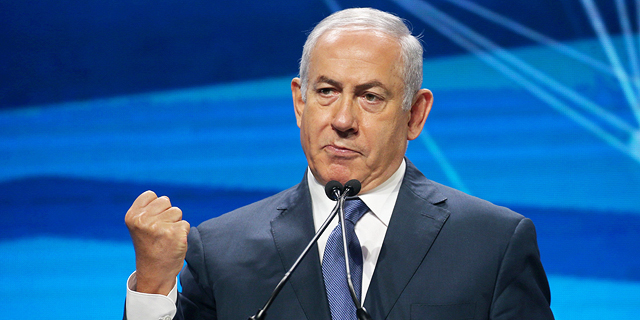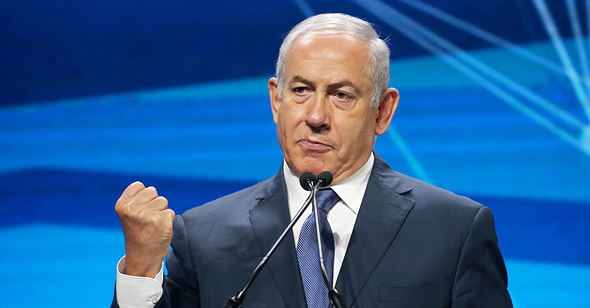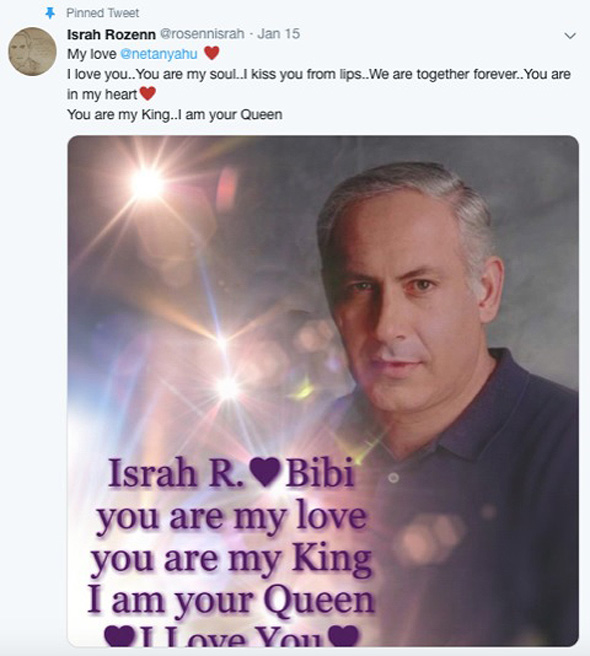
A Local Social Media Strongman, Netanyahu Stalls Israeli Anti-Propaganda Legislation
More than a question of preserving power, for Netanyahu, winning the upcoming elections may be what stands between him and an indictment
Tofi Stoler | 08:25, 18.01.19
Israeli election law dates back to 1959 and prohibits, among other things, carrying torches as part of a political campaign in the 90 days leading to elections. It also prohibits handing out gifts, serving food and alcoholic drinks, and supplying entertainment. Presenting videos is also explicitly prohibited except on daily transmissions at a specific hour determined by Israel’s Central Elections Committee.
For daily updates, subscribe to our newsletter by clicking here.
Needless to say, the law does not take into account the internet. Or mobile phones, mass distribution of direct messages, and any other sort of activity that is more in touch with how political campaigns are managed in the country nowadays, whether by internal, or external interested parties.
Obsolete legislation notwithstanding, growing concerns of online tempering by elements from within and without the country have propelled government watchdogs, politicians, and advocacy groups into action, albeit in some cases in too measured a pace. On Monday, Israel’s Central Elections Committee issued a public statement concerning actions it has taken to prevent interference, counting among them a meeting in October with Sean Evins, Facebook’s government and politics outreach manager, and Jordana Cutler, the company’s head of policy in Israel. In its statement, the committee said it was collaborating with the country’s security agencies and is formulating a strategy to address the matter, and cannot “for obvious reasons” disclose the exact methods the committee and national security agencies intend to use or have used. The committee also recently hired Buki Carmeli, the former head of Israel’s National Cyber Security Authority, as an external advisor, a spokesman for the committee confirmed in a phone call with Calcalist Tuesday. Earlier this month, Nadav Argaman, head of the Israeli Security Agency, better known by its acronym Shin Bet, said that a certain country will attempt to influence Israel’s general elections. Argaman, who spoke at a public event, explicitly stated which foreign country he was referring to, but the Israeli military censor has barred the publication of the information. Following Argaman’s statement Tamar Zandberg, head of Israeli left-wing party Meretz, issued a statement demanding action to make sure Russian President Vladimir Putin “doesn’t steal the elections” in favor of Israel’s current prime minister Benjamin Netanyahu. While potential foreign influence may or may not prove to be an issue in Israel’s general elections to be held April, use of social media and other technology platforms to sway voters by Israeli actors has already proven to be a tectonic shift in local politics. Steadily ahead in polls, Prime Minister Benjamin Netanyahu is often criticized for his campaigning methods that favor direct contact with potential voters on social media over mediated contact through the sometimes critical press corps. As early as the 1990s, Netanyahu was the first prime minister to post online videos addressed to the public on a dedicated website. Netanyahu’s social media tactics consist of posts, videos, and stories published on a nearly daily basis and exposed to millions of users. The Israeli ruler has so far managed to be associated with several scandals involving allegedly fake likes, fake accounts, and bot-networks all aimed to increase Netanyahu fandom. Even when addressing serious issues—in some cases criminal allegations brought against him—Netanyahu’s tone on social media is often playful. “A bribe without money is like an omelet without an egg,” a story published to Netanyahu’s Instagram account earlier this month read. The story urged users to add their own examples, making light of the fact that Netanyahu is being investigated over bribery allegations. Last Hanukkah, Netanyahu posted a holiday video mocking the seriousness of mounting investigations involving him and his family. On the day of the 2015 elections, Netanyahu posted a video in which he claimed Arab voters were “flowing to the polls,” driven on buses paid for by left-wing organizations. After winning the election, Netanyahu apologized for his comment regarding the country’s Arab minority, which constitutes 20% of its population. For Netanyahu, winning the upcoming elections may mean more than just maintaining power. It could be what stands between him and an indictment, as the general attorney may be less inclined to pursue criminal charges against a recently elected prime minister.

No Comments Add Comment